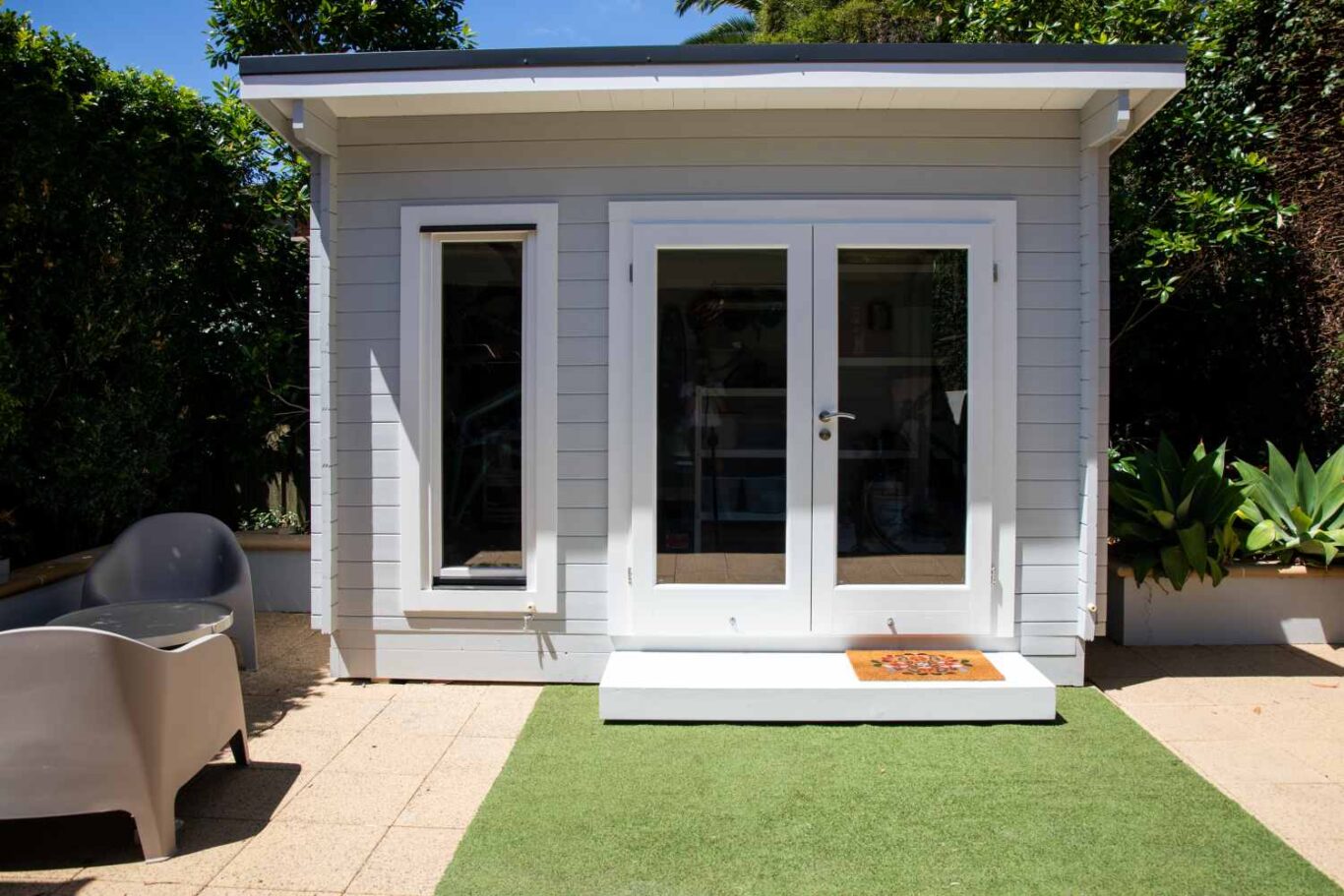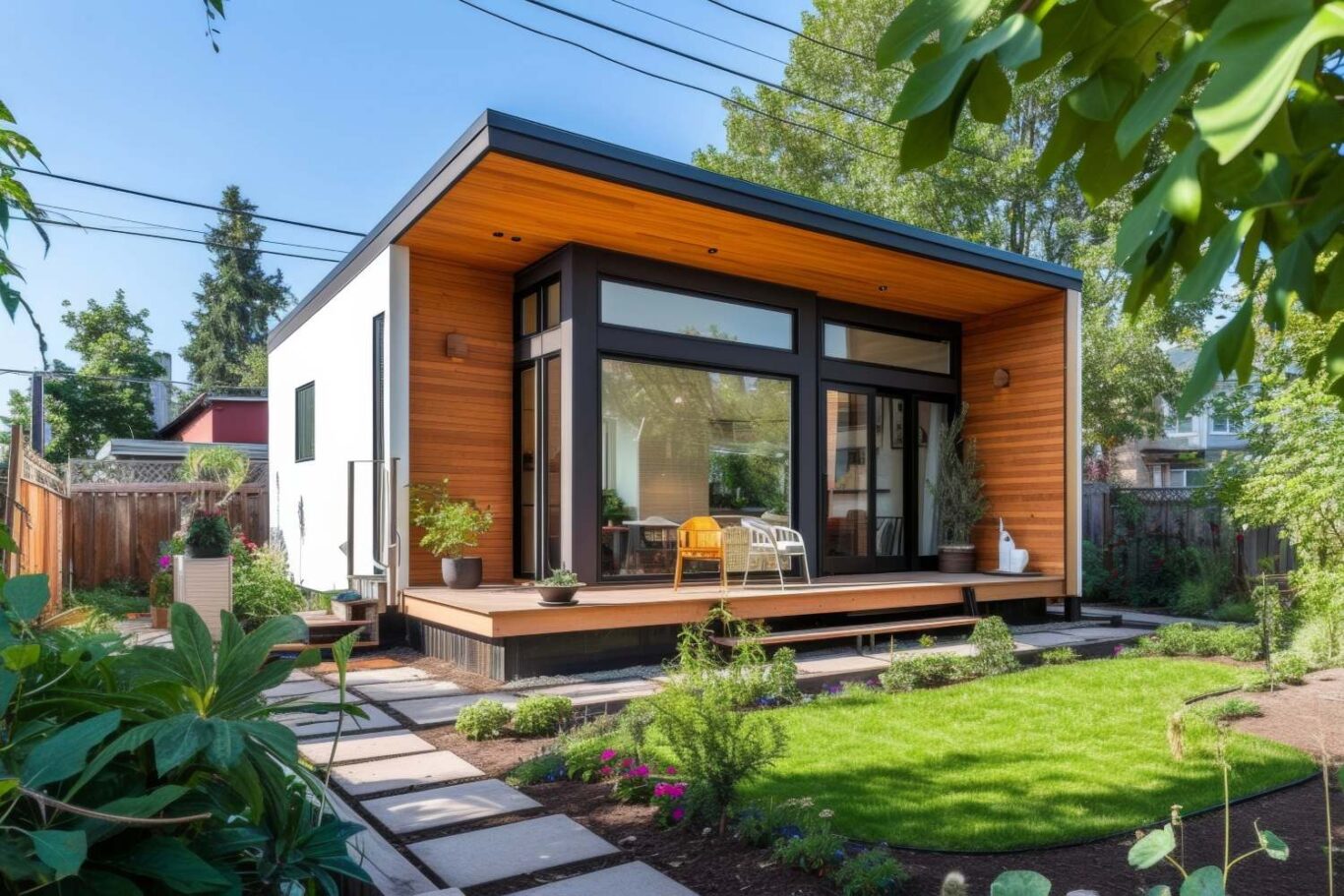Accessory dwelling units (ADUs) are gaining momentum in West Michigan as homeowners seek flexible solutions for multigenerational living. Whether you’re planning for aging parents who want independence while staying close or simply looking to add rental income potential, an ADU on your property could provide the perfect balance of privacy and proximity. However, successful ADU projects require careful planning around zoning regulations, utility connections, and design considerations. Here’s what West Michigan homeowners need to know before moving forward with an ADU project.
What is an “ADU” or “Granny Pod”?
ADUs are secondary housing units located on the same property as another single-family home. They’re sometimes referred to as “granny pods” when used for older relatives – especially models that are prefabricated. Aging is a unique experience that often benefits from the assistance of loved ones, and ADUs offer a unique housing option for aging adults to live close to their families without having to give up their privacy.
In West Michigan’s desirable lakeside and suburban communities, available lots are increasingly scarce and expensive. ADUs offer an attractive alternative to buying additional property, allowing homeowners to maximize their existing investment while meeting evolving family needs.

However, each municipality in Ottawa and Allegan Counties has specific accessory unit regulations covering everything from sizing to whether or not residential uses are permitted. Municipalities are intentional in forming these requirements to align with the values and safety needs of their communities. Understanding your local township’s rules is essential before investing in design and planning. We’ve gathered an overview of those requirements into a table later in this article.
Types of ADUs in West Michigan
As you get started, consider the type of ADU, weather conditions and the size of the construction site. Michigan’s harsh winters can make ADUs hard to maintain—especially prefabricated ADUs built off-property with little to no foundation. Access to a garage and snow clearing can also complicate things. ADUs built directly on property, also known as “stick-built ADUs,” are more likely to stay comfortable yearround, but these require a large space to accommodate construction demands.
Pre-Fabricated ADUs
Pre-fabricated ADUs are those built in a factory to about 90% completion and then transported to the building site for assembly. They are typically the cheaper and more popular option compared to those constructed on-site, yet may not be the best option to withstand Michigan’s harsh winter weather.

Stick-Built ADUs
Stick-built ADUs are constructed on-site using traditional framing methods and are typically made of wood. They allow for greater customization as the units are built from top to bottom on your property, yet they will be more labor-intensive and costly.

West Michigan Township Ordinances
Recognizing and respecting each Michigan township’s zoning codes on constructing and holding ADUs is crucial. The table below shows some of the cities in West Michigan that prohibit ADUs as of August 2025.
Please note that this table was researched to the best of our knowledge, as of Aug, 2025. Please always consult a knowledgeable builder or your local planning department before making plans.
| Municipality | County | ADU Status | Last Updated | View Ordinance |
| City of Holland | Ottawa | Allowed Must contain sleeping area, kitchen and full bathroom | 2021 | City of Holland – ADU Guidebook |
| City of Zeeland | Ottawa | Allowed Up to two per lot, if aligned with requirements | 2010 | City of Zeeland – Zoning Code |
| Holland Charter Township | Ottawa | Allowed Permitted but cannot be detached from primary residence. | 2024 | Holland Charter Township Code |
| Blendon Township | Ottawa | Not Allowed Residential accessory uses not allowed | 2024 | Blendon Township – Zoning Ordinance |
| Georgetown Charter Township | Ottawa | Not Allowed Residential accessory uses not allowed | 2021 | Georgetown Charter Township Code |
| Jamestown Charter Township | Ottawa | Limited – Elderly Only Elder Cottage Accessory Dwelling limitations (granny pods) | 2018 | Jamestown Charter Township – Zoning Ordinance |
| Port Sheldon Township | Ottawa | Not Allowed Residential accessory uses not allowed | 2019 | Port Sheldon Township – Zoning Ordinance |
| Robinson Township | Ottawa | Not Allowed Residential accessory uses not allowed | 2024 | Robinson Township – Zoning Ordinance |
| Wright Township | Ottawa | Not Allowed Residential accessory uses not allowed | 2024 | Wright Township – Zoning Ordinance |
| Fillmore Township | Allegan | Not Allowed Residential accessory uses not allowed | 2022 | Fillmore Township Code |
| Zeeland Charter Township | Ottawa | Conditionally Allowed Special land uses in A-1, R-1, R-2, and R-3 zoning districts | 2023 | Zeeland Charter Township – Planning Commission Report |
ADUs as a Tool for Aging in Place
As more Americans enter the 65-and-older segment, ADUs offer one alternative to living alone or away from family. Making sure to check all the boxes before breaking ground is important for the safety of your family and neighborhood.
Considering a “granny pod” of your own? We’re here to help, and can help you understand the pros and cons of ADUs, additions or renovations as you care for your aging relatives.
Connect with our team to get started and learn more.